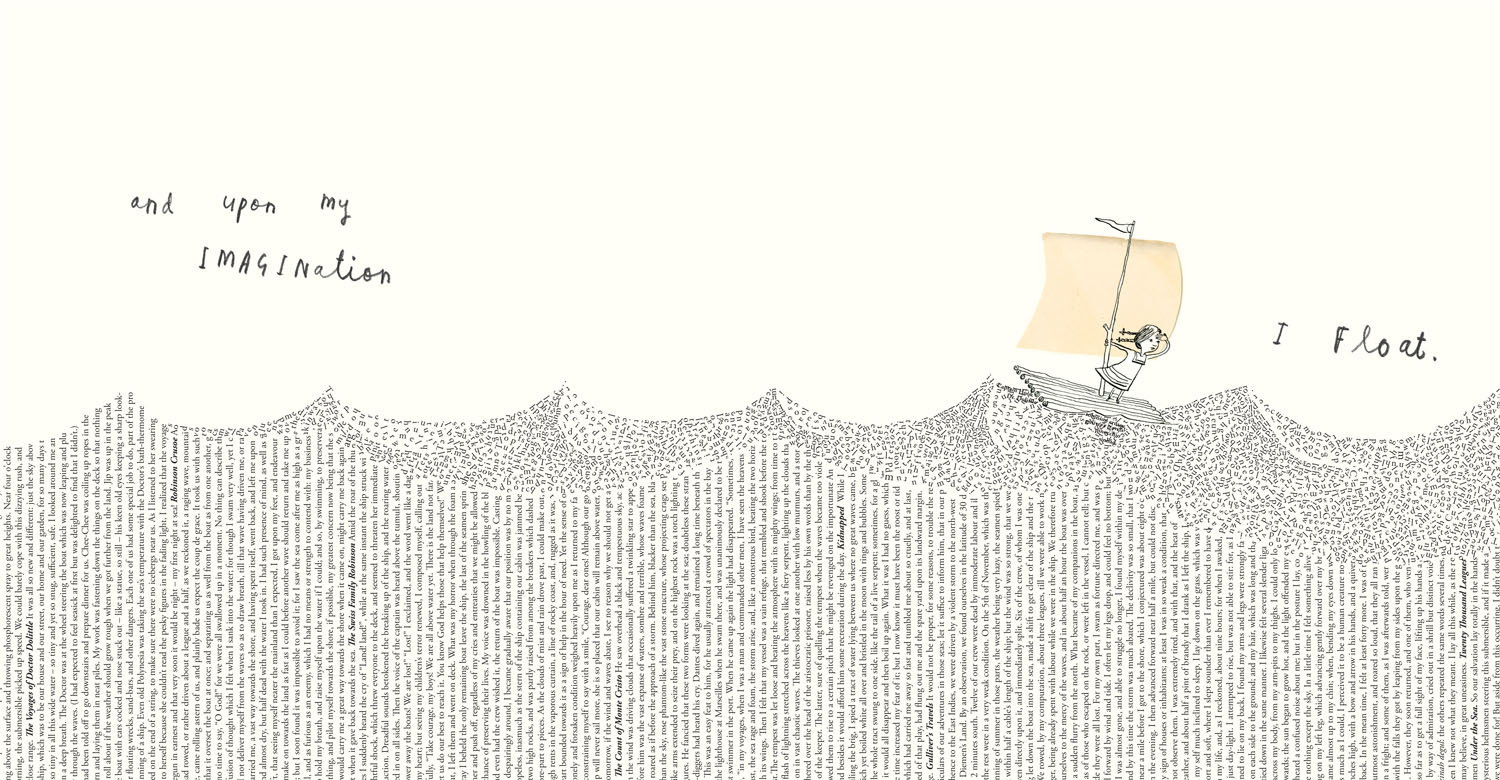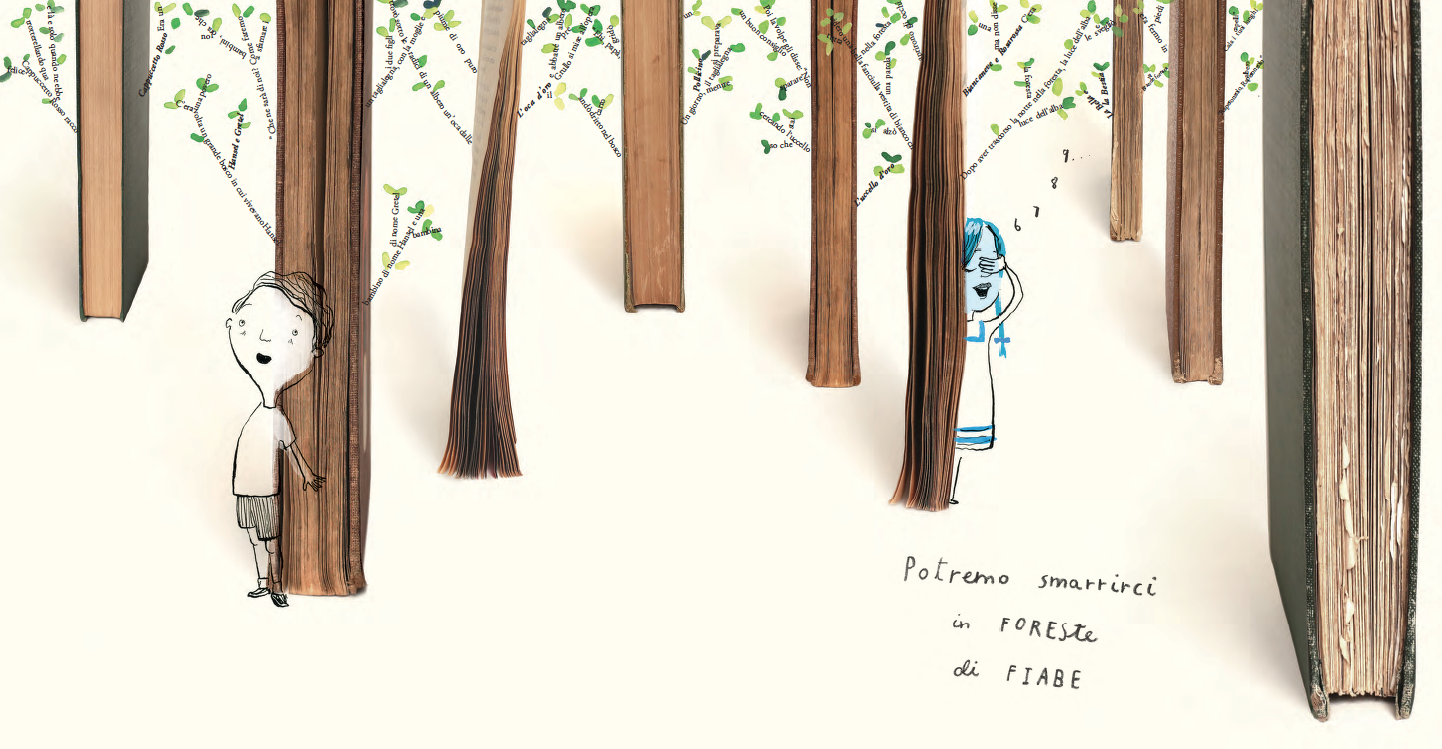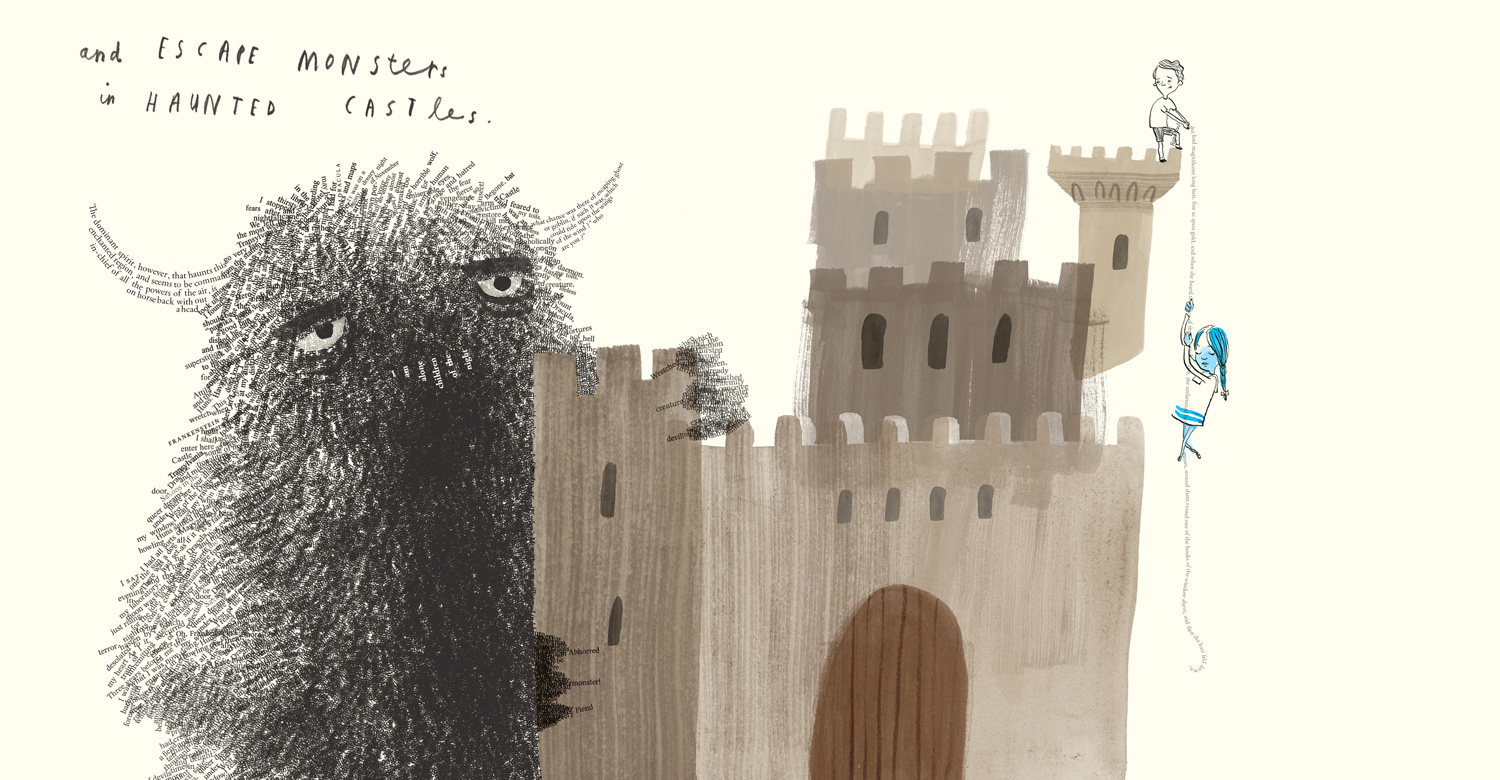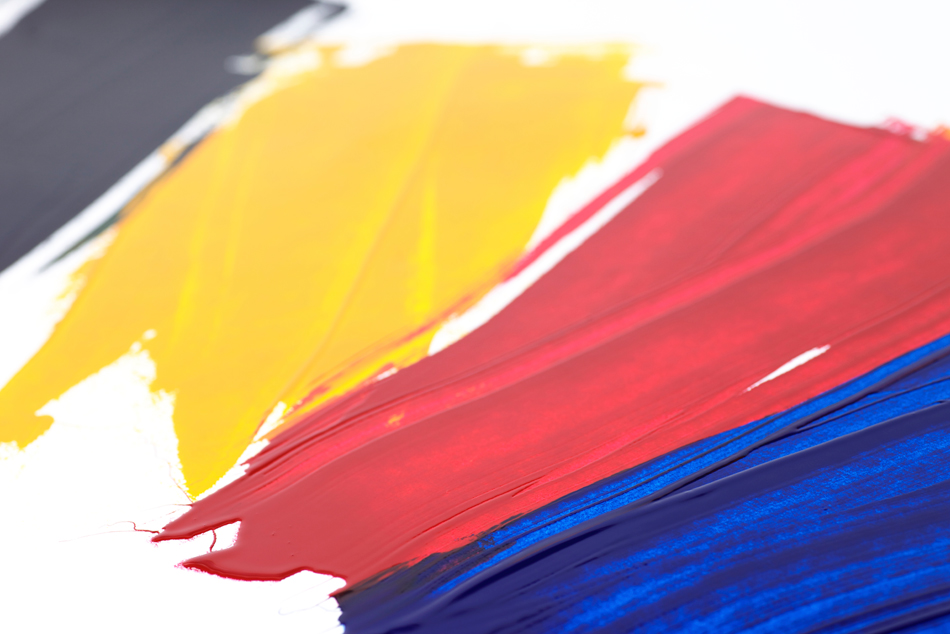Interview #25
Sailing Across a Sea of Words
Sam Winston and His Lyrical Art

Written by RMM
images by A Child of Books & Twitter
So, what exactly is a book?
Well, the Cambridge English Dictionary defines it as:
A) a written text that can be published in printed or electronic form
B) a set of pages that have been fastened together inside a cover to be read or written in
But if we let our world be defined by dictionary entries, then a book would be a cold and lifeless object. For many including writer and thinker Jorge Luis Borges, who decidedly proclaimed that “Paradise will be a kind of library”, books pulsate with life and inspiration. Acclaimed novelist Stephen King would agree, seeing books as a kind of “uniquely portable magic”.
It is this same uniquely portable magic that A Child of Books possesses, with its lyrical and playful spreads that blur the boundaries between art, illustration and type. A collaboration between author-illustrator Oliver Jeffers and fine artist Sam Winston, A Child of Books is a best-selling picture book that inspires readers to create, question, explore and imagine.

Born in 1978, London-based Sam Winston is a man of many words. As an artist, he deals with words in their various visual forms and meanings — creating moving typographic pieces that have been exhibited worldwide in museums; Tate Britain, the British Library, the Library of Congress in Washington, D.C., MoMA NYC and Stanford University, among many others, all hold his artist’s books .

For A Child of Books, Sam transformed his esoteric art into typographic topographies that spill across pages. The main characters of the book — a shy little boy and intrepid little girl — climb and gambol across mountains of words, oceans of lullabies and fields of nursery rhymes. As the little boy and girl travel across word-filled landscapes that pay homage to classic children’s literature, readers will easily find themselves lost in a poetic journey of self-discovery.
RMM manages to catch Sam out of his busy schedule to chat about his practice and what it’s like making art for children.
RMM: Who do you identify with more in A Child of Books, the girl or the boy?
Sam: The girl has appeared, in my imagination, for a long time and she seems to be the one that pops up in my writing and thinking the most. But that’s not to say I identify with her more — perhaps because she does appear in that way that makes me more the boy?
Ultimately, both characters are from my unconscious and are welcome guests.

RMM: Which was your favourite spread in A Child of Books to design?
Sam: I like the forest of books — it was a lot of fun soaking books in the bath and watching the pages warp into ‘tree trunks’.
RMM: Did you always know that you would work with text and words, or did you fall in love with it along the way?
Sam: I had difficulty learning to read as a kid because of dyslexia so when I was young I wouldn’t have guessed that words were to be my thing. That said, I did love to write and at some point that combined with my love to draw. The main point was that I never lost my enthusiasm to create; everything else fell into place.
RMM: How do you create your art? Do you assemble them by hand?
Sam: Ever since computers dominated the work place, my preference has been to explore hand-made techniques like collage, drawing and sculpture. Even when I’m working on a computer, I tend to use it in a way similar to the handmade.
With A Child of Books, wherever there are single letters in the image, each will have been placed and rotated by hand (I use a program called Adobe InDesign). These were then combined with Oliver Jeffers’s pen and ink drawings.

RMM: Do words come first or the image?
Sam: In the creative process I often lead with an idea that is first expressed in writing, then explored through drawing/collage. In A Child of Books, Oliver became very integral to letting the visual world unfold.
RMM: People often think that words are just tools used to communicate. Do you think words have a life of their own?
Sam: Firstly I would say — words are pictures too! We often overlook how language looks to get to the content, but what we don’t realise is that before we’ve even “read” the words, our brains have already done thousands of readings based on the word’s colour, size, font, context etc. … and if we were not aware of this context, then reading is much less rich and rewarding.
RMM: What’s a word every child should know?
Sam: Play.
(This interview has been edited and condensed for clarity)
Know More A Child of Books and Sam Winston, please visit:


